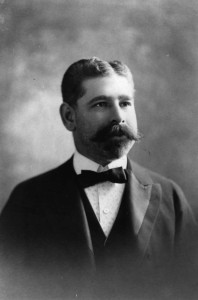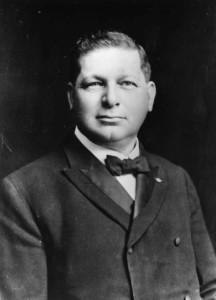Asher Hamburger & Family
Values Codes I – E – L – P
Asher Hamburger was born in the village of Altenschoenbach, near Wuzburg, Bavaria, in 1821.
At a very young age, he was apprenticed to a rope-maker.
At the age of 18, Asher Hamburger, along with a brother, immigrated to the United States, arriving in 1839.
Along the way . . .
Asher Hamburger found work in a tassel factory in New York.
As soon as he had saved enough money, he started a small general store in Pennsylvania.
It was in Pennsylvania that he gained a reputation as “the honest retailer.”
Another brother arrived in 1843. The three of them moved to Alabama, where they opened three stores along the Tombigbee River.
In 1850, when word of the California Gold Rush reached the South, the Hamburger brothers headed West by way of the Isthmus.
Sacramento was their destination, but it did not prove to be the ideal spot. In 1851 two brothers moved to San Francisco.
There, they started a wholesale mercantile house under the name of Hamburger Brothers.
Asher Hamburger was left in charge of the Sacramento store.
In spite of fires and floods, Asher and his two sons kept the business going until 1881, when David and Moses Hamburger convinced their father that Los Angeles offered far better opportunities.
Los Angeles
The Hamburgers called their Main Street establishment The People’s Store, catering to working-class customers. The business thrived.
In 1908, the Hamburger Building was built, housing Hamburger’s Department Store, which at the time was the largest modern steel-frame building.
It quickly became Los Angeles’ largest and most important store.
Attached to the south end of their building, the Hamburgers built a theater: Hamburger’s Majestic Theatre.
It was built for full stage shows and even opera.
The Majestic later became a beautiful movie theater. (Today – it is a parking lot.)
The store was sold in the 1920’s to David May of the May Company of St. Louis.
This was to be the May Co.’s first large “branch store.” [click here]
Civic
After World War I, there was a large flow of immigrants into New York. The Industrial Relief Office was formed to help move immigrants to other parts of the United States. The Hamburgers were very active in this program, offering free transportation to qualified immigrants to work in their store.
David Hamburger was a member of the board of La Fiesta de Los Angeles, as part of his membership in the Merchant’s Association of Los Angeles.
David was also the organizer of the Employers’ Association, a group founded to help control trade union problems.
Fraternal
Moses Hamburger served as President of the Semi-Tropic B’nai B’rith Lodge.
Family
Asher Hamburger married Hannah Bien in 1855.
Together, they had seven children, six of whom survived to adulthood: David, Moses, Belle, Mrs. Otto Sweet, Mrs. Jennie Marx, and Miss Evelyn Hamburger.
Two of their children were involved in the business were: Moses (1857-1944) and David Hamburger (1860-1930).
Asher Hamburger died in 1897, and is interned in the family crypt at the Home of Peace Cemetery in Los Angeles.
Hannah Bien Hamburger died in 1907, and is also interned in the family crypt.
“Hard, honest labor, upright methods, and taking for his precept the teachings of his early childhood, ‘De ye unto others as ye would have them do unto you.’ These laid the foundation upon which his children build.”
— Rabbi Martin Meyer, 1916
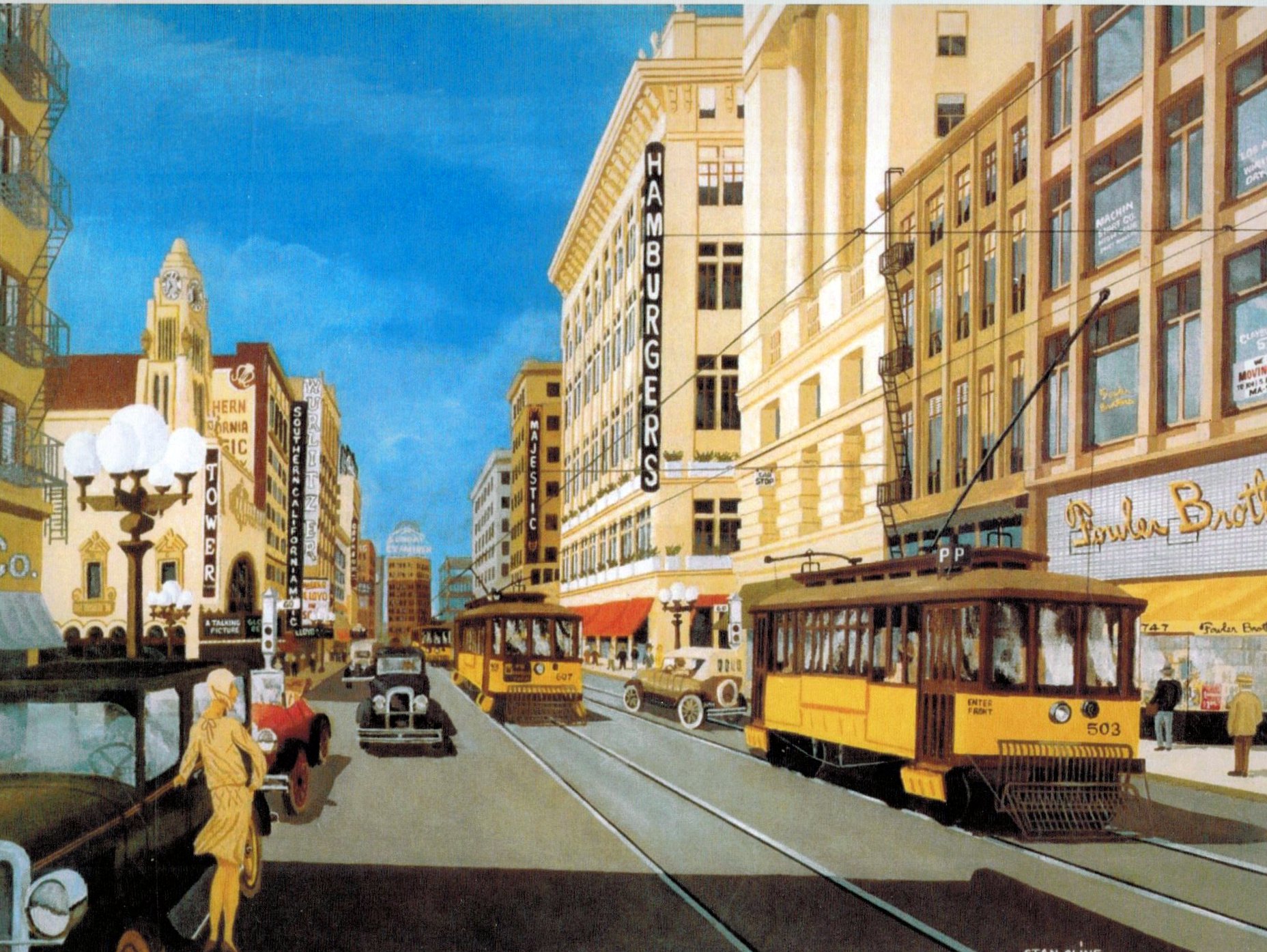
Hamburger’s Department Store & the Majestic Theatre, painting by Stan Cline [www.stancline.com]
Source
- Martin Meyer, The Jews in California (San Francisco: Emanu-El, 1916).
David Epstein is curator for this Hamburger Family exhibit.
“Thank You” to Natalya Lukin for German location spelling correction.
Multi-Generational Jewish Department Stores of the West
Neiman-Marcus of Dallas, Texas
Hamburger’s Department Store of Los Angeles, California
Gump’s of San Francisco, California
Meier & Frank of Portland, Oregon
Auerbach’s of Salt Lake City, Utah
Goldwater’s of Phoenix, Arizona
May Co. of St. Louis, Missouri
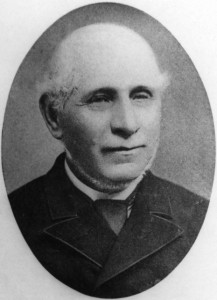
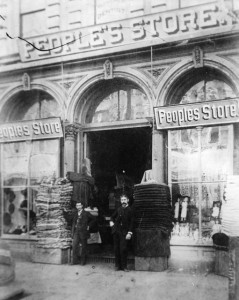
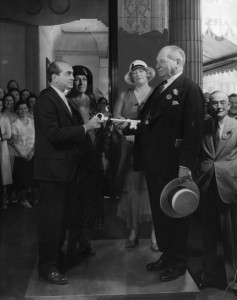
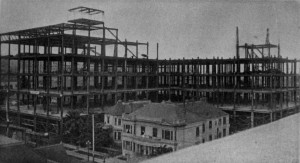
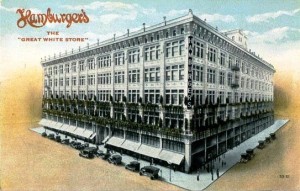
![WS3034-21-N-Hamburger, Hellman, Hamburger, Hellman, Hellman-Los Angeles,CA [1927]](http://www.jmaw.org/wp-content/uploads/2012/11/WS3034-21-N-Hamburger-Hellman-Hamburger-Hellman-Hellman-Los-AngelesCA-1927-197x300.jpg)
